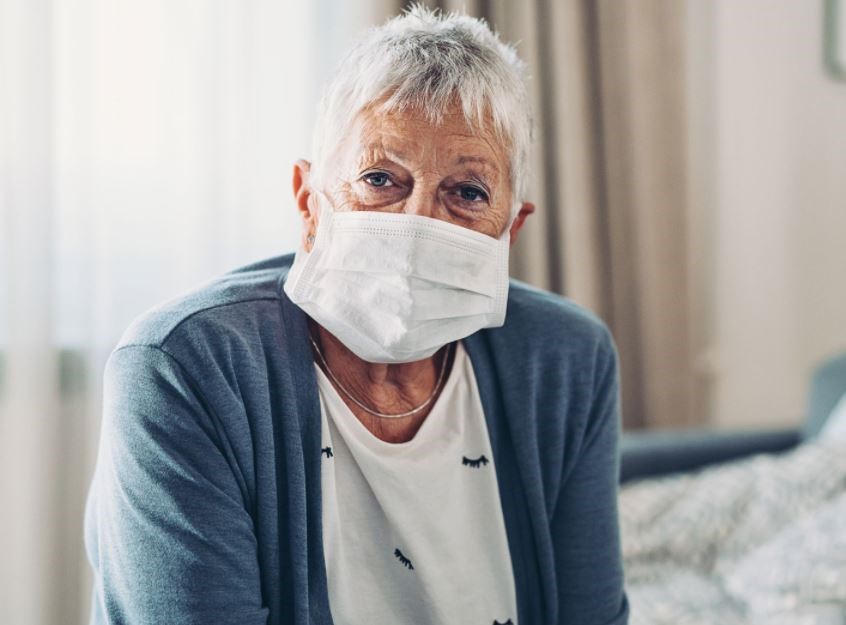QUEEN'S PARK — Faced with rising rates of community infection and the emerging threat from the Omicron variant, Ontario is implementing new measures to mitigate the spread of COVID-19 in long-term care and retirement homes.
The province recorded 1,429 new cases on Tuesday.
The government announced that, effective immediately, all general visitors to an LTC home must now be fully vaccinated.
In addition, LTC homes are required to increase their infection prevention and control (IPAC) audits.
Unvaccinated caregivers have until Feb. 21 to receive their second vaccine dose.
Surveillance testing for COVID-19 will also be reinstated.
Staff, who must be fully vaccinated to work in nursing homes, will need twice-weekly tests, as will caregivers and volunteers.
Regular visitors will have to provide a negative test from the previous day.
Among other measures, only two visitors for each resident will be allowed at the same time indoors.
Resident activities will be restricted, and cohorts will be needed for dining and other high-risk activities.
Minister of Long-Term Care Rod Phillips said the measures are based on the best available scientific and medical advice.
On Dec. 22, policies for retirement homes will be enhanced with a variety of measures including regular testing for all staff and visitors regardless of vaccination status.
The government said it is "strongly encouraging" retirement homes to restrict general visitors to those who are fully vaccinated.
Dr. Kieran Moore, Ontario's Chief Medical Officer of Health, said the Omicron variant shows why it's important to provide an extra layer of protection to people at greatest risk in congregate settings.
The following measures at long-term care homes take effect at 12:01 a.m. on Friday, Dec. 17, 2021:
- Testing of all staff, students, volunteers, and caregivers, regardless of vaccination status, at least twice a week prior to entry into the home as part of enhanced active screening practices.
- Requiring a negative test upon entry to a long-term care home for all visitors and support workers who provide essential services to a resident or to the facility, unless they had a negative test the day before.
- Requiring caregivers to be fully vaccinated, unless they have a valid medical exemption or are attending to a resident in a palliative end-of-life situation. Caregivers will be required to have a first dose by Dec.20, 2021 and all required doses to be considered fully vaccinated by Feb. 21, 2022. In the interim, designated caregivers who are not fully vaccinated would need to restrict their visit to the resident’s room.
- Limiting indoor visits to a maximum of two people per resident at a time and outdoor visits, where feasible, to a maximum total of four people per resident at a time.
- Cohorting of residents for higher-risk activities, such as singing and dancing, and discouraging large social activities. This is in addition to the cohorting of residents during meal times, which is currently occurring.
- Limiting social day trips to only residents who are fully vaccinated and requiring those residents who leave the home for social reasons to be actively screened upon their return to the home and if they had a known exposure to a case, isolated and tested using a PCR test. All residents, regardless of vaccination status, can continue to leave the home for essential reasons, such as medical appointments.
- Suspending overnight absences for social purposes regardless of residents’ vaccination status. Residents who wish to leave the home overnight for social purposes or due to COVID-19 may be temporarily discharged and need to follow the re-admission protocol to return at a later date.
In retirement homes, the following measures are effective Dec. 22, 2021:
- Requiring rapid antigen testing for staff, volunteers, contractors and essential caregivers, regardless of vaccination status, two times per week prior to entry into the home as part of enhanced active screening practices.
- Requiring rapid antigen testing for general visitors and support workers entering a retirement home, regardless of vaccination status.
- Strongly encouraging retirement homes to restrict general visitors to only those who are fully vaccinated and implementing additional requirements for essential visitors and general visitors who are not fully vaccinated when entering a retirement home.
- Limiting the number of visitors and group sizes for social activities and events.
- Implementing additional testing and isolation requirements for residents when they return from an overnight absence.
- Instructing retirement homes to increase IPAC audits.
